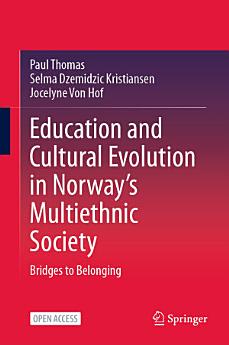Education and Cultural Evolution in Norway’s Multiethnic Society: Bridges to Belonging
About this ebook
The major contribution of this book lies in its critical exploration of the intersectionality of race, culture, and education, grounded in critical pedagogy principles. Through case studies, personal narratives, and literary analyses, the authors highlight how marginalized students navigate their identities within systems that often stigmatize them.
Topics include authentic multicultural education, the reclamation of space and identity by non-white students, and the examination of “ghetto schools” as sites of both challenge and empowerment. Special features include visual illustrations and engaging literary analyses. Ultimately this volume serves as a compelling call for educational reform and cultural dialogue, emphasizing the transformative potential of education in promoting social justice and community cohesion.
About the author
Paul Thomas is a Professor in the Faculty of Humanities, Sports and Educational Science at University of South-Eastern Norway. He holds a PhD from King's College London, UK, emphasizing the Creation-Evolution debate from an Islamic perspective. Dr. Thomas teaches learning theories, multicultural education, and supervises postgraduate students. He co-leads the "Minorities and Education" research group and has published works addressing racism and diversity in education.
Selma Dzemidzic Kristiansen is an Associate Professor in the Faculty of Humanities, Sports and Educational Science at University of South-Eastern Norway. She holds a PhD in Pedagogy, focusing on cooperative learning within the PEDRES program. Her teaching responsibilities are at the master's level of the Norwegian teacher education program, where she explores various aspects of pedagogy, including inclusive education. Selma has published works on cooperative learning, contributing to educational practices.
Jocelyne Von Hof is an Assistant Professor of Pedagogy, at University of South-Eastern Norway specializing in the practices of educators in multilingual settings, with a focus on including minority language-speaking children. Her research highlights the importance of valuing language proficiency to create supportive learning environments. Von Hof emphasizes inclusive practices that prioritize cultural identity and linguistic diversity, significantly contributing to promoting equity and understanding in diverse educational contexts.






